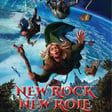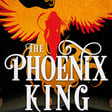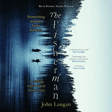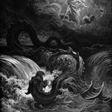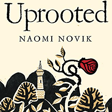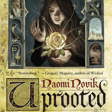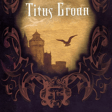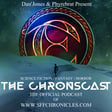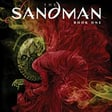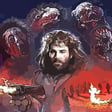
House Of Leaves with Ed Wilson
This episode we finally open that door of the Chronscast household we'd not dared to open before and plunge into the abyssal labyrinth that is Mark Danielewski's maddeningly epic debut novel, House Of Leaves. A book that defies conventional categorisation, it's been described as a horror, a literary piece, a puzzle, and even a love story. We're joined on this subterranean literary odyssey by renowned literary agent Ed Wilson. Ed is the director of the Johnson & Alcock literary agency, representing a vibrant and developing list of fiction and non-fiction, from new and debut writers to established, bestselling and award-winning authors.
With Ed we gleefully dip down the House Of Leaves rabbithole, discussing ergodic literature, innovation in writing, the perils of overanalysing texts, and the Manic Street Preachers. We also chat about the submissions process and navigating the slush pile, and the options open to authors and agents.
Elsewhere, The Judge gives a sumptuous talk on the use of clothing in worldbuilding, and the effects that clothing can have on society, and our writing. We'll hear the winning entries to May's 75-word challenge, and April's 300-word challenge, written by Oliver Helm and Victoria Silverwolf respectively, and we get an unexpected phone call from an ex-President of the United States, whose home extension has gotten out of hand and seems to lead to the belt of Orion.
Join us next month when we'll be joined by literary agent John Jarrold to talk about Rob Holdstock's winner of the 1984 World Fantasy Award, Mythago Wood.
Index
[00:00 - 52:54] Ed Wilson Interview Part 1
[52:54 - 54:07] Voicemail 1
[54:08 - 1:08:28] The Judge's Corner
[1:08:28 - 1:09:10] Voicemail 2
[1:09:11 - 1:12:31] Writing Challenge Winners
[1:12:32 - 1:13:43] Voicemail 3
[1:13:44 - 2:07:31] Ed Wilson Interview Part 2
[2:07:32 - 2:09:36] - Credits



